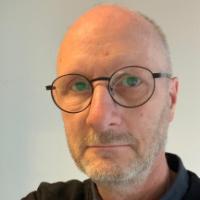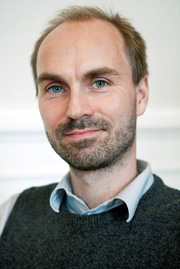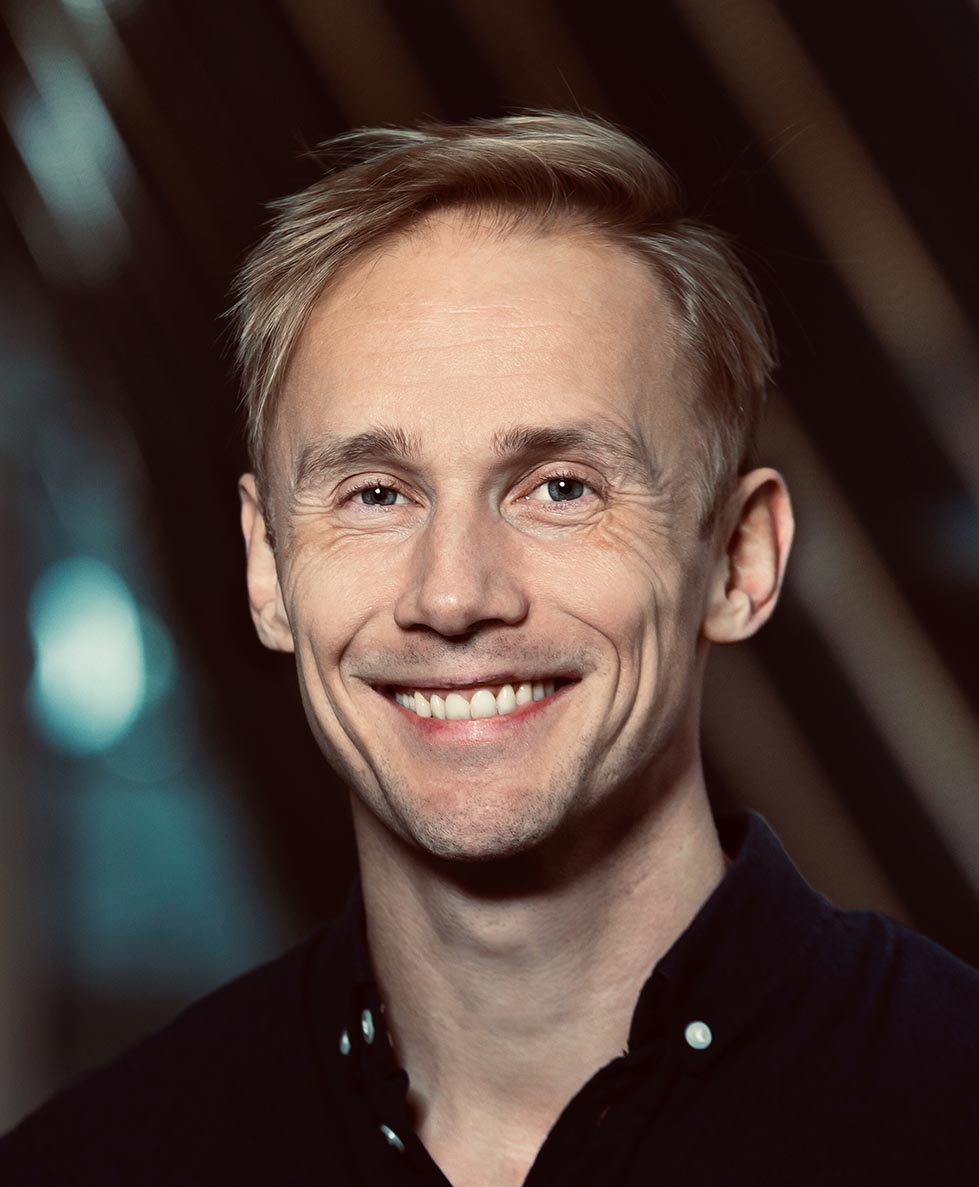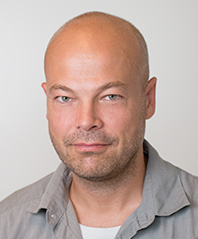Welcome to the Protein Biology Group (PBG) website

The Protein Biology Group (PBG) is part of the Section for Biomolecular Sciences and is composed of four subgroups with a common interest in protein structure-function relationships. Our aim is to bridge quantitative protein chemistry and cell biology by strong research within the fields of protein folding, protein-protein interactions and protein quality control in the cell. The overriding themes in our research portfolio are:
- Proteasome-mediated protein degradation
- Structure-function relationships of transcription factors
- Protein interaction and calorimetry
- Disulfide bond reactions in the eukaryotic cytosol and endoplasmic reticulum
- Protein Design
The PBG is characterized by numerous collaborations between the individual PI’s and the sharing of equipment and facilities. The close teamwork is further nourished by bi-weekly seminars with both internal and external speakers and coworkers. We have close ties to a number of domestic and international collaborators in both academia and the industry.
 |
Jakob R. Winther, Professor KU profile page | Personal homepage My scientific work is focused on basic aspects of protein chemistry and using molecular biology and molecular genetics to understand structure-function relationships in proteins. The main areas of experience include disulfide bond formation and thiol-disulfide redox reactions, in particular in a chemical/biophysical setting with a strong focus on in vitro characterization. |
 |
Karen Skriver, Professor KU profile page | Personal homepage Transcription factors control specific genes throung molecular interactions and are themselves regulated by e.g. ubiquitin-dependent degradation. We study the function of specific transcription factors as regulators and regulates. This involves characterization of DNA-binding mechanisms and intrinsic protein disorder in transcriptional activation networks. In addition, we study the molecular specificity and interactome of components of the ubiquitin-dependent protein degradation system. |
 |
Kresten Lindorff-Larsen, Professor KU profile page The primary tools used in our research are computational methods that we use to study the structure and dynamics of proteins. A particular focus is methods that combine experimental data from NMR spectroscopy with molecular simulations. In one set of studies we combine experiments and simulations to provide a detailed structural interpretation of the experimental data. In another methods to predict what mutations are likely to occur and give rise to drug resistance and what possible mutations giving rise to drug resistance would actually render the enzyme inactive. |
 |
Lars Ellgaard, Professor KU profile page | Personal homepage In our work, we study this process of oxidative protein folding and degradation in the endoplasmatic reticulum. Specifically, we investigate a number of enzymes involved in this process, and how the interplay of ER redox enzymes and glutathione modulates the overall endoplasmatic reticulum conditions and how misfolded proteins from the endoplasmatic reticulum are degraded. |
 |
Martin Willemoës, Associate Professor KU profile page | Personal homepage Our work includes elucidating the mechanism of catalysis and regulation for enzymes involved in complex polysaccharide degradation (amylase, mutanase and alpha-mannosidase), for proteases (HIV protease), antibiotic resistance conferring enzymes like beta-lactamase and small molecule converting enzymes mainly from nucleotide metabolism. |
 |
Pëtur O. Heiðarsson, Associate Professor KU profile page | Personal web site Our research focuses on transcription factors, dynamic protein molecules that regulate genomic architecture and transcription of genes. We study how the structure and dynamics of transcription factors allow them to navigate and modulate the genome, and how they enable cell fate decisions to be made. We are particularly invested in deciphering the activity of pioneer transcription factors involved in cell reprogramming and applying rational design approaches to harness these factors for efficient cell fate control We use an integrative approach by combining single-molecule and ensemble techniques, biochemistry, and computer simulations through collaborations, to obtain a microscopic molecular view of transcription factor function. |
 |
Rasmus Hartmann-Petersen, Professor KU profile page | Personal homepage In nature cells are regularly challenged by environmental and physiological stress conditions, which may lead to conformational changes of cell proteins to a non-native form. Also during protein synthesis many requirements must be met for a protein to fold and achieve a functional state, so even in the absence of stressful cellular conditions, misfolded proteins may accumulate and pose a serious threat to the cell. To cope with the presence of misfolded proteins, cells have developed molecular chaperones and the ubiquitin-proteasome system that deftly refold or degrade the misfolded proteins, respectively. We study these mechanisms at the molecular and cellular level primarily using mammalian cells. |
PhD projects
We offer a range of different PhD projects, often in collaboration with international academic coworkers or industrial domestic partners. As a phd student you are accepted into the PhdDschool at the Faculty of Science and become part of the PhD program in Protein Science. Please apply directly with the individual principal investigators.
MSc and BSc Student Projects
The group has an extensive collaboration around techniques and subjects. When working in the group you will be confronted with the following techniques either directly in your own project or through the person on the bench next to you. The major techniques used include:
- Protein expression and purification
- Biophysical techniques (protein stability and folding)
- Immunological techniques (Western blot analysis, immunoprecipitation)
- Molecular biology (cloning, PCR, mutagenesis)
- Protein-protein and protein-DNA interactions (pull-down, gel-retardation)
- Mammalian cell culture (overexpression, RNAi, specialized assays)
- Plant molecular biology
- Genetic screening and two-hybrid analysis
- Analytical techniques (UV-VIS and fluorescence spectroscopy, RP-HPLC)
The PBG has a strong focus on education and welcome new students in the lab. We generally have about 8 masters and 8 bachelor students in our laboratories. All students participate in the weekly PBG seminars, where they give at least one short presentation while working in the lab. If you want to hear more about working in the PBG from a student perspective you are welcome to contact one of the students in the staff list.
You can find current proposals for BSc and MSc projects within PBG in our project database.
Courses
The Protein Biology Group offers teaching in the BSc and MSc and PhD courses on protein and cell-biology related subjects. You can see a list of the courses taught by the members of the Biomolecular Regulation Group in the list of courses taught by the Section for Biomolecular Sciences.
We are always happy to receive applications from potential postdocs, PhD, Masters, and Bachelor students, and we welcome applications from both Denmark and abroad. If you are interested in joining the lab or just want to know more about our work, find the relevant scientific staff member and contact us by phone or email – or stop by one of the labs in the Biocenter (see map here).
See currently open positions here.
Postdoc positions
Open positions are advertised broadly in the relevant media.
In addition, chances of obtaining postdoc grants are quite good when applying with Danish and/or international foundations. If you are interested in applying contact the scientific staff member that you would like to work.
PhD projects
The University of Copenhagen offers studentships for students holding a Danish or foreign Masters degree. In addition, possibilities exist to apply for funding from private foundations. Phd students are accepted into the PhD school at the Faculty of Science and become part of the PhD program in Protein Science.
Masters and Bachelor students projects
We always offer both Masters and Bachelor projects within our different areas of research. For more information and a list of current projects see the University of Copenhagen project database here.
For all types of positions, please contact the staff to discuss specific projects.
Contact
Protein Biology Group
Section for Biomolecular Sciences
Ole Maaløes Vej 5
DK-2200 Copenhagen N
GROUP MEMBERS
Prof. Jakob Rahr Winther
Prof. Karen Skriver
Prof. Kresten Lindorff-Larsen
Prof. Lars Ellgaard
Assoc. Prof. Martin Willemoës
Assoc. Prof. Pétur O. Heiðarsson
Assis. Prof. Kelli Hvorecny
Prof. Rasmus Hartmann-Petersen
